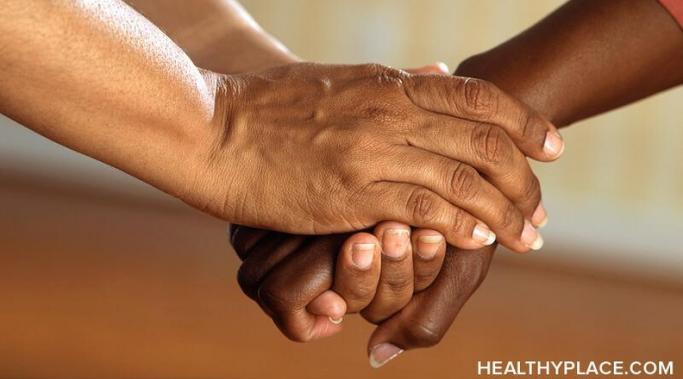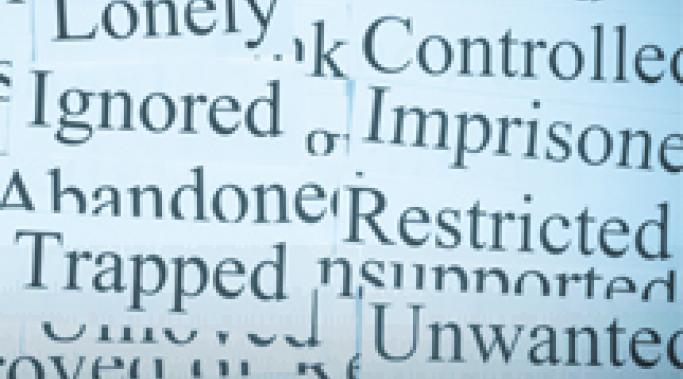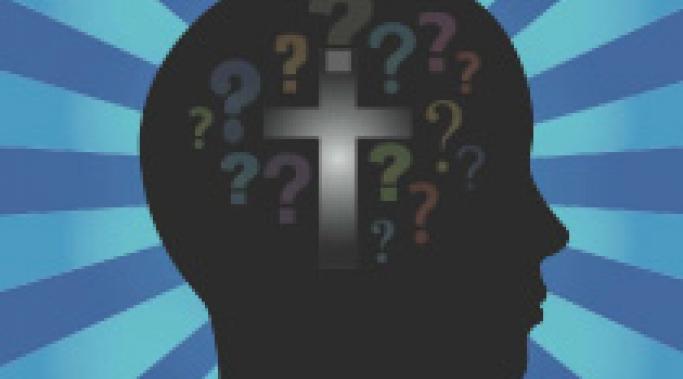I'm someone who is always extremely anxious to reach an "end goal." This often makes it difficult to be mindful and appreciative of the steps and paths it took to achieve that goal. In recovery, it can be difficult to appreciate what life offers, but each step in life is its own gift, and enjoying the journey can be even more meaningful than reaching the destination. There is a mindful quote that helps me appreciate the journey.
Spirituality and Mental Illness
Schizoaffective disorder recovery helped me gain confidence, but first, recovery took away a gift I thought made me special. Before my diagnosis in my early 20s, when I was really struggling, I thought that I was a medium and could communicate with spirits. I had both auditory and visual hallucinations that I thought were ghosts. Letting go of the belief I was psychic in early schizoaffective disorder recovery hurt my confidence.
Let's face it--Facebook attracts some toxic people and you need to know how to handle toxic people on Facebook. Whether they're posting belittling comments or mocking any honest, heartfelt post, they leave you feeling worse than before you read their comment. There are three major types of toxic people on Facebook, and the good news is there are ways to deal with people with issues. Here are the three toxic people on Facebook and how to handle them.
It is always sad when faith and mental health stigma go hand in hand (Abused for Christ: When Religion Becomes Painful). Recently I was interviewed by a reporter about the stigma attached to mental health in a faith community.
Recently I got mental health advice from a tarot reading. I'll be the first to admit I'm skeptical about tarot (Alternative Mental Health Information). But recently I got a reading that was empowering. The reading had three pieces of mental health advice I will share since they're good for everyone to know.
There are three myths some religious people believe about depression. Recently, I was on a panel discussing mental illness at a church. One individual said that we could get over depression because, "some people make their own depression" and, "I can do all things through Christ who strengthens me." It brought back several memories of how this kind of thinking nearly destroyed my life. The best way to fight these depression and mental health myths is through education, so here are three myths some religious people believe about depression.
What are the mental health needs of the Native American community? At first, I was hesitant to write this because although I have Cherokee ancestry, I'm of mixed blood and not enrolled (my blood quantum is too low). But this morning on a news site, I saw that 11 members of a Canadian First Nation attempted suicide on Saturday night alone, causing the tribe to declare a state of emergency.1
One thing that constantly frustrates mental health professionals who deal with domestic violence is why people stay. As a domestic violence survivor, I have some insight into why people stay in domestic violence situations. There are three major religious reasons why people in a domestic violence situation stay: the belief that marriage must be preserved, the belief that men are supposed to be dominant and women are supposed to be submissive, and the belief that women are basically evil.
Professionalism is one reason why we shouldn't be afraid of secular (non-religious) counselors. When the Duggar family discovered their son Josh was molesting his sisters and a family friend, they considered going to the police until a family friend told them "government" programs were not a good way to treat Josh's sexual misconduct (What Is Rape? Was I Raped?). As a result, rather than sending Josh to a competent therapist, they sent him to build houses for a few months. Sadly, fear and mistrust of secular counselors is common in the religious community. This mistrust stems from the belief that social workers will take your children away if you spank them or that the therapist will be hostile to a person's faith. Therapists are even derogatorily referred to as "alphabet soup," but we shouldn't be afraid of secular counselors.
Recently, I remembered the time I was kicked off a mission trip to Mexico because of my "demonic influence" (depression). It's a wound that has not yet fully healed, largely because it altered my career path (I was going to become a missionary until my diagnosis became a big red flag). Many christians believe three lies about mental illness.









